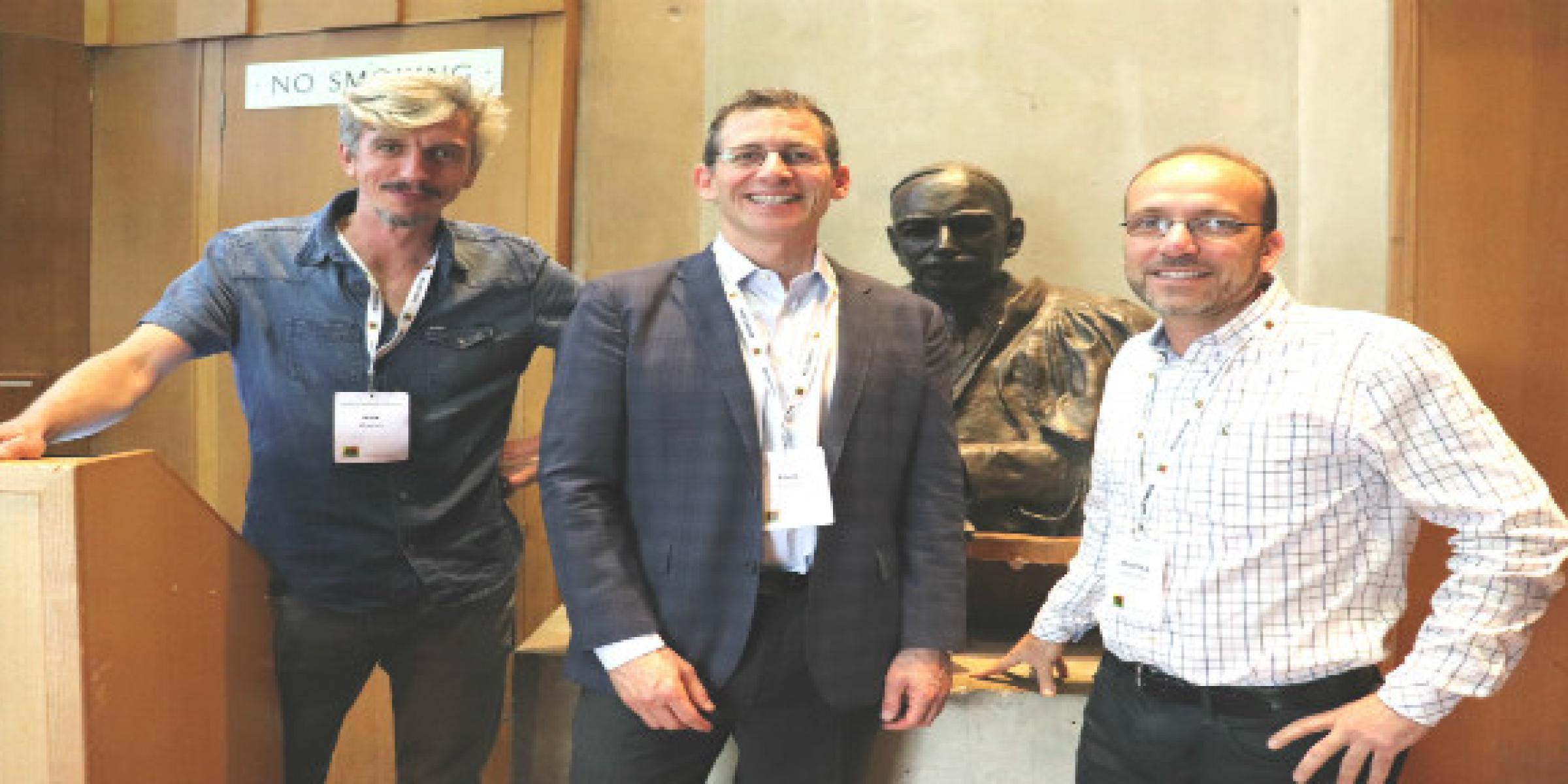Prof Andreas Kontoleon (Department of Land Economy, Cambridge University) Prof Ben Groom (Department of Geography and Environment, London School of Economics), in collaboration with the Centro Euro-Mediterraneo sui Cambio Climatici (CMCC), co-hosted the 20th annual BIOECON conference on the economics of biodiversity conservation between the 12th and the 14th of September 2018 at Kings College, Cambridge.
After last year’s conference at the University of Tilburg, BIOECON returned to its spiritual home, the majestic buildings of King's College Cambridge, and once again it was attended by around 130 delegates from academia, government, NGOs and the policy world at large.
The conference was generously funded by the MAVA Foundation, the British Academy, the Economics and Social Research Council (ESRC), the Alexander von Humbolt Institute, and the journal Nature Sustainability. The conference was endorsed by the European Association of Environmental and Resource Economists (EAERE).
The conference proper was preceded by a workshop organised by BIOECON network member Stefanie Engel which focussed on the role of social preferences in promoting conservation behaviour, and use of experimental methods to inform policy for ecosystems conservation, particularly Payments for Ecosystem Services (PES). The workshop was funded by a grant from the Alexander von Humbolt Institute and was attended by invited experts from all over the world (See BIOECON programme website for more details).
As in previous years, BIOECON 2018 consisted of parallel, policy and plenary sessions covering topics at the core of the Network’s focus, ranging from land-use change to biodiversity measurement, from fisheries to forestry to wildlife management, and from sustainability to natural capital via intergenerational equity. Around 70 scientific papers were presented in 5 parallel sessions, and two policy plenary sessions. In addition this year, a themed workshop entitled “Land-use in the 21st Century” was held in parallel with the usual scientific sessions. This interdisciplinary workshop was funded by the MAVA foundation and contained half a dozen presentations from different disciplines on the topic of land-use change and biodiversity conservation in the Anthropocene.
The first of the two policy sessions was chaired by Pr. Andreas Kontoleon and discussed the successes and failures of PES schemes throughout the world with experts Prof Julia Gordon Jones (Bangor University), Dr Gabriela Simonet (Center for Environmental Economics of Montpellier, INRA, and Center for International Forestry Research), Prof William Sutherland
(Miriam Rothschild Professor of Conservation Biology, Department of Zoology, University of Cambridge) and Dr Sven Wunder (European Forest Institute, Barcelona)
Importantly, each day the conference was kicked off by a keynote plenary speech. On day one, Prof Douglas Gollin spoke on the latest developments in conserving and measuring genetic diversity, concluding that our conservation strategy in this regard ought to cast the net beyond those species and breeds that are currently in use, and prepare for future uncertain technological change and pathogen adaptation. On day two Prof Paul Ferraro discussed the evidence on the efficacy and effectiveness of PES schemes, and the power (statistical and otherwise) of experimental and programme evaluation methods to identify this. The message was clear in this regard, publication bias and under-powered studies have led to an over-optimistic account of PES. Both keynotes were characteristically thought provoking, and both participated fully in other aspects of the conference: meeting delegates, attending presentations. Our thanks goes out to all who participated in the conference and who helped to make it such a success once again. This includes Silvia Bertolin at CMCC and Hannah Kettle at the Department of Geography and Environment, LSE, Elisabeth Gsottbauer (particularly, but not exclusively, for pre-conference organisation), and to Paul Lohman, Jing Meng and Ben Probst administrative support and to Andhina Kusumawidjaja on the MAVA workshop.
Details of the 2018 conference can be found at: www.bioecon-network.org. Next year’s conference will be held at the University of Wageningen. Follow the BIOECON network on twitter at @bioecon1, and use #bioecon2018 to comment on this year’s conference itself. All comments are very welcome!
Comments from the post conference survey 2018:
Good pre-conference workshop, great plenary session by P. Ferraro and great food/place/organisation
Keynote speakers were excellent and I really enjoyed the pre-conference workshop.
Always great to come to BIOECON. Good keynotes and organisation;
This is an interesting conference which is small and enables good discussions by participants. In addition the inclusion of the discussant ensures that a presenters gain excellent feedback on their work.
I found this to be another successful BIOECON. The keynote speakers were insightful and stimulating, and the policy panel sessions shed light on opportunities for policy-relevant research and generated active discussions. In general, I found the research presented in the parallel sessions to be of a high quality.
Great conference! Small is beautiful!

